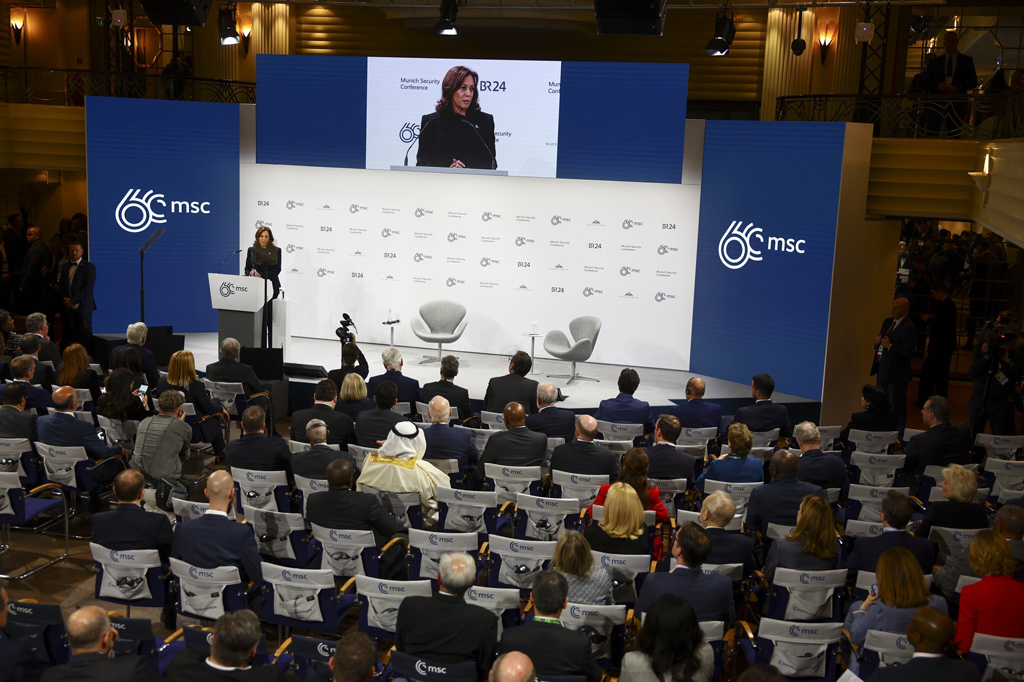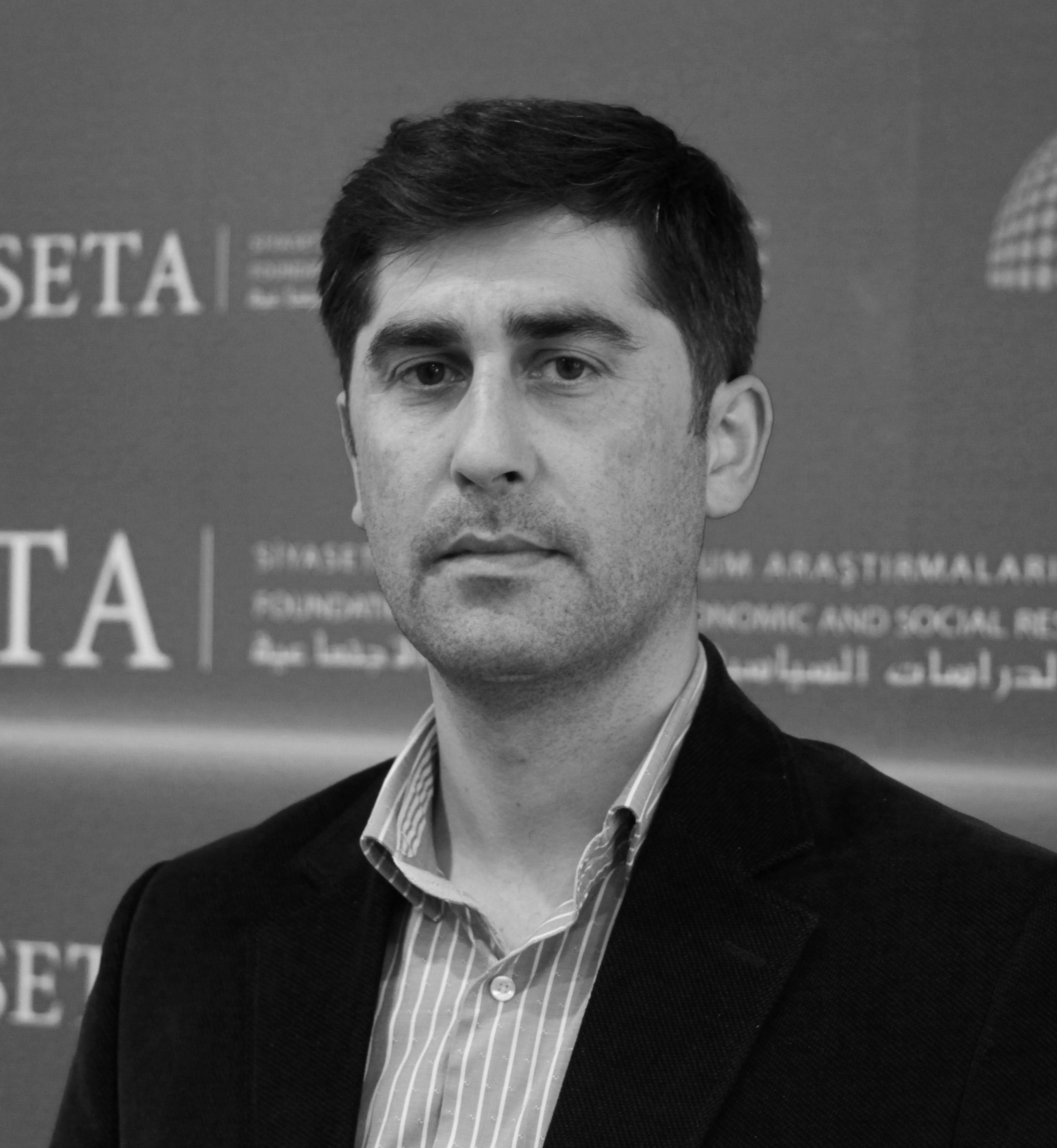Today’s world is facing rapidly changing security dynamics and increasing geopolitical competition. This competition, which has accelerated and morphed, especially with the COVID-19 pandemic, has also created a deep security crisis following Russia’s invasion of Ukraine and Israel’s attacks in Gaza.
Furthermore, this crisis extends beyond the resurgence of traditional military conflicts as a central paradigm shaping international politics. The increasing importance of technology, its destructive as well as constructive side, the potential large-scale crises caused by climate change, the systemic change in the global economy and the ever-increasing world population show us that we are in a period of systemic anxiety.
On the other hand, while many international organizations, including the United Nations, have lost their effectiveness in preventing crises, a deep crisis of legitimacy has emerged on a global scale. According to U.N. Secretary-General
Antonio Guterres: “The U.N. Security Council, the main platform for addressing issues of global peace, is deadlocked by geopolitical differences. This is not the first time the council has been divided. But this time it is the worst. The current dysfunction is deeper and more dangerous.” Stating that the so-called well-functioning mechanisms during the Cold War period helped to manage superpower relations, Guterres said that he believes that such mechanisms do not exist in today’s multipolar world and that “our world has entered an era of chaos.”
Guterres’ statement is indeed striking and realistic at the same time. In the last 24 months, 78 active armed conflicts, large and small, have emerged on a global scale. While some of these conflicts have been declared cease-fires, some of them are completely new conflicts. Therefore, it is clear that we are experiencing one of the most conflictual processes of the post-Cold War period.
'Munich Security Report': Lose-Lose?
At a time when it is still unclear in which direction the global system is evolving, ambiguities are increasing and global risks are diversifying,
the Munich Security Conference (MSC) provides important clues to understand the West’s strategic codes, how it positions itself and how it sees strategic processes outside itself. As it will be remembered, the arguments against the American-centered unipolar international system in the speech delivered by Russian President Vladimir Putin at the 2007 conference not only marked the beginning of Russia’s return to the global political scene but also brought about the acceleration of multipolarity debates. This year, the main emphasis of the MSC was the military support of Ukraine to the extent that Russia could not win in Ukraine. A possible Russian victory in Ukraine could even mean a change in the post-Cold War geopolitical status quo. This is Europe’s greatest fear.
This year’s "Munich Security Report" analyzes the challenges facing the international community and the steps that need to be taken to overcome them under the title “
Lose-Lose?” Since the end of the Cold War, there has been hope that the world would move toward a more peaceful future. But this optimistic expectation has turned into growing disappointment. In particular, none of the American strategic predictions have been realized. According to the American strategic community, the great power competition was over and the emergence of another power to challenge the United States would either be impossible or prevented by the United States. The liberal economy would expand its sphere and transform communist systems such as China, which would become docile actors in the neo-liberal international order. Finally, democracy would expand and deepen. However, not all three readings were correct.
Zero-sum game
The report rightly emphasizes that in global politics, relations between states are increasingly perceived as a zero-sum game. This perception is underpinned by the belief that the international order has failed to fulfill its promise of “growing the pie” for all. Developing countries feel that they are not getting their fair share of the benefits of this order. On the other hand, countries like China, despite being the biggest beneficiary of the liberal economic order, feel that the U.S. is trying to restrict their legitimate aspirations. Thus, the liberal economic order not only creates space for ambitious economic powers such as China but also shifts the competition to a confrontational axis in the name of maintaining the West’s economic supremacy.
According to the report, Russia’s aggression against Ukraine and the coups in sub-Saharan Africa highlight the fragility of the international order. Interestingly, however, the only sentence in the report about Israel’s aggression against Gaza is as follows: “Israel’s response plunged Gaza into despair, marked by soaring civilian casualties, destroyed infrastructure and a humanitarian emergency.” Given Germany’s pro-Israel stance, this is not surprising. However, it is Israel’s genocide in Gaza, and the Western countries that continue to give it space, that is the most important issue where the rules-based international system is no longer functioning and the crisis of legitimacy has crystallized.
The section of the report that focuses on the current security and diplomatic dynamics in the Middle East seems quite detached from the reality of
the ongoing war in Gaza. While it is emphasized that the Abraham Accords have changed traditional alliances and enmities, it is clearly ignored that the Accords are far removed from the present. One of the important points to be taken into account in the report is the claim that the U.S. withdrawal from
the Middle East has been exaggerated. As a matter of fact, Israel’s security has become more important than ever, leading the U.S. to re-engage in the region.
Technology, especially artificial intelligence (AI), is at the center of increasing geopolitical competition. Developments in these areas have become one of the key factors determining how the international order is shaped. Technological progress is vital not only for economic growth and innovation but also for national security. As the U.S. and China compete for dominance in the field of artificial intelligence, the global risks of unregulated AI development are among the issues highlighted in the report.
The AI race will be the main determinant of geopolitical power in the coming decades. However, if this race proceeds in an unregulated manner, it may lead to various events and security risks. Problems such as AI systems displaying ideological, biased or racist prejudices and the sometimes unpredictable behavior of AI models during military applications transform the nature of competition in the global system much differently than the impact of traditional military power.
The report emphasizes the importance of a new inclusive order that promotes global prosperity and seeks “interdependence without overdependence.” According to the report, this order should underpin economic security policies with measures such as strengthening strategic industries, protecting critical infrastructure and reducing exposure to competitors by diversifying trade relations.
As a result, instead of describing the role and responsibility of the West in triggering crises, the report offers a non-Western definition of crisis. On the other hand, it argues that the way out of the current global disorder caused by crises is cooperation, mutual benefit and open dialogue. It also argues that the international community must work together to build a more just, sustainable and peaceful world. In the face of the current challenges of the global order, the answer to the question “Lose-Lose?” lies in a future based on mutual understanding and cooperation. World leaders and the international community must move beyond zero-sum thinking and work together for a better future. However, this requires broad cooperation not only in the areas of security and economy but also in areas such as technology, climate change and human rights.
[Daily Sabah, March 1, 2024]







